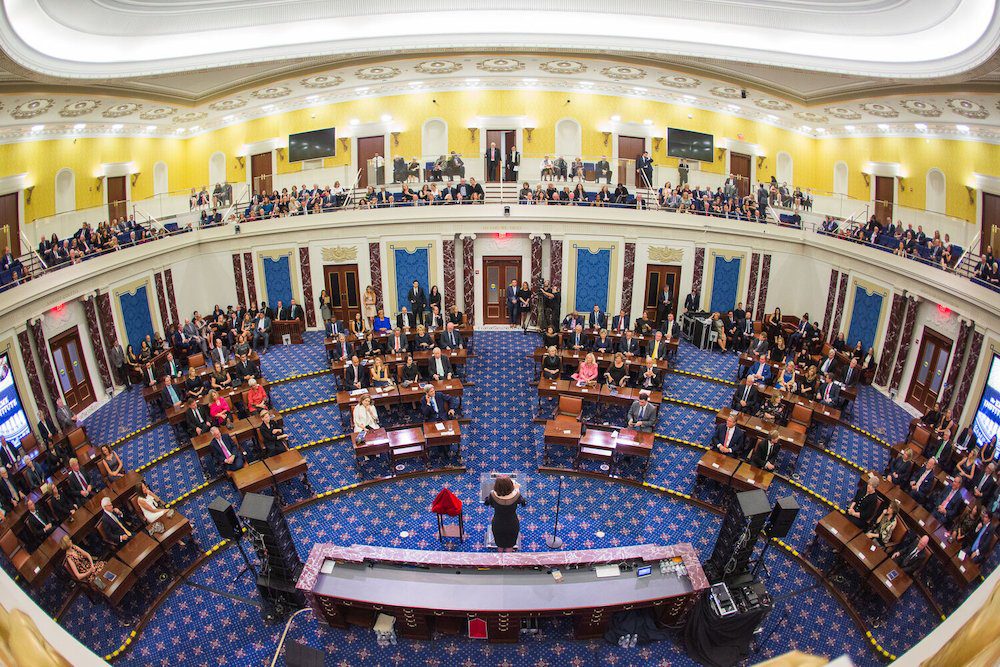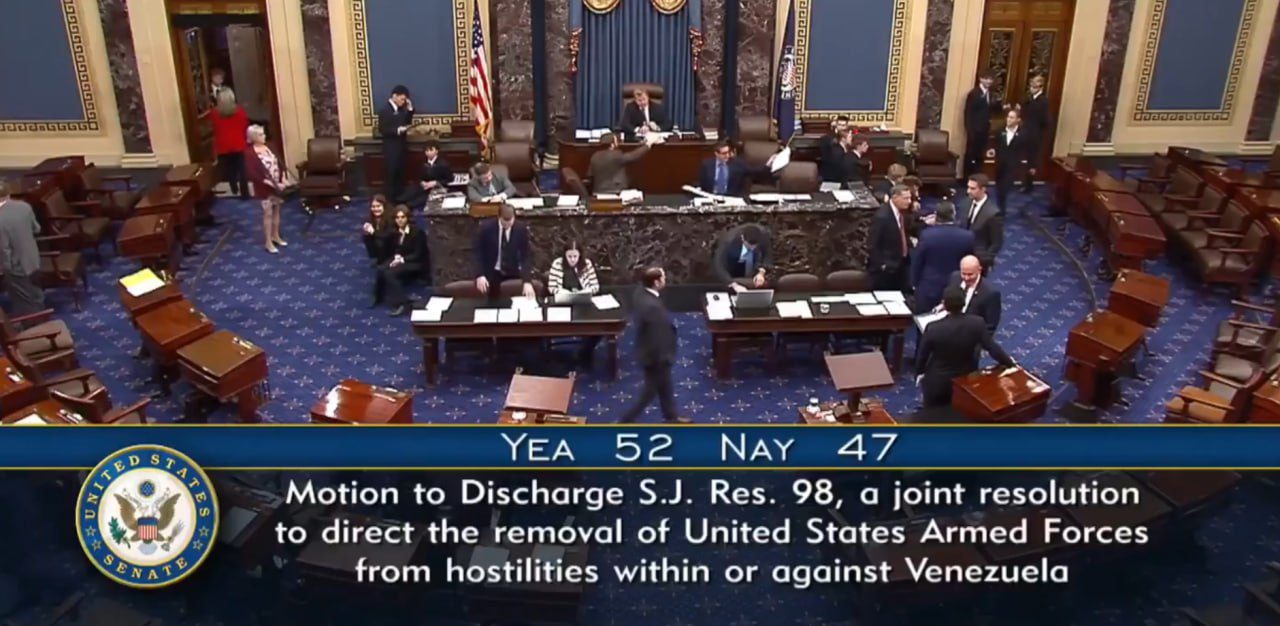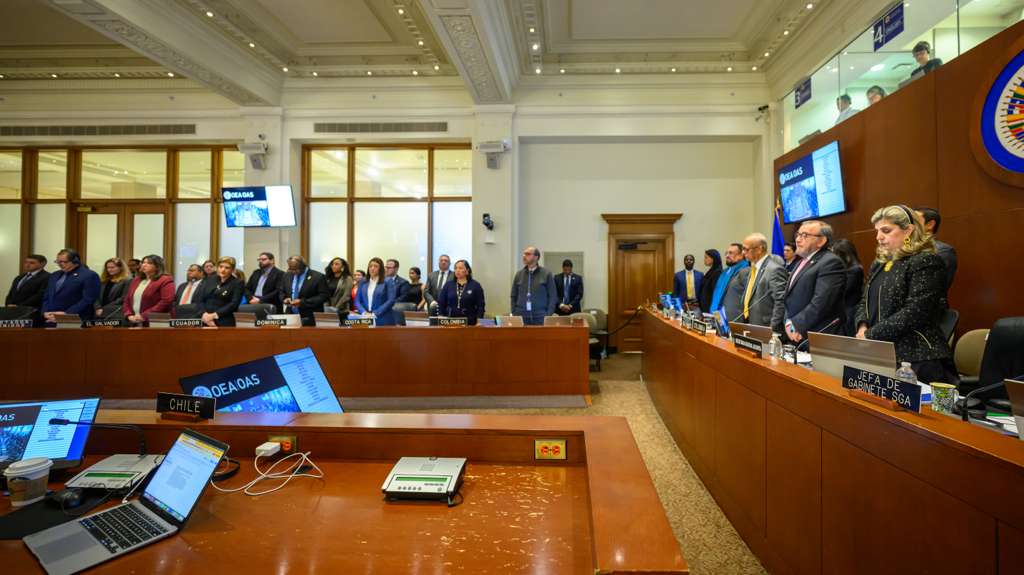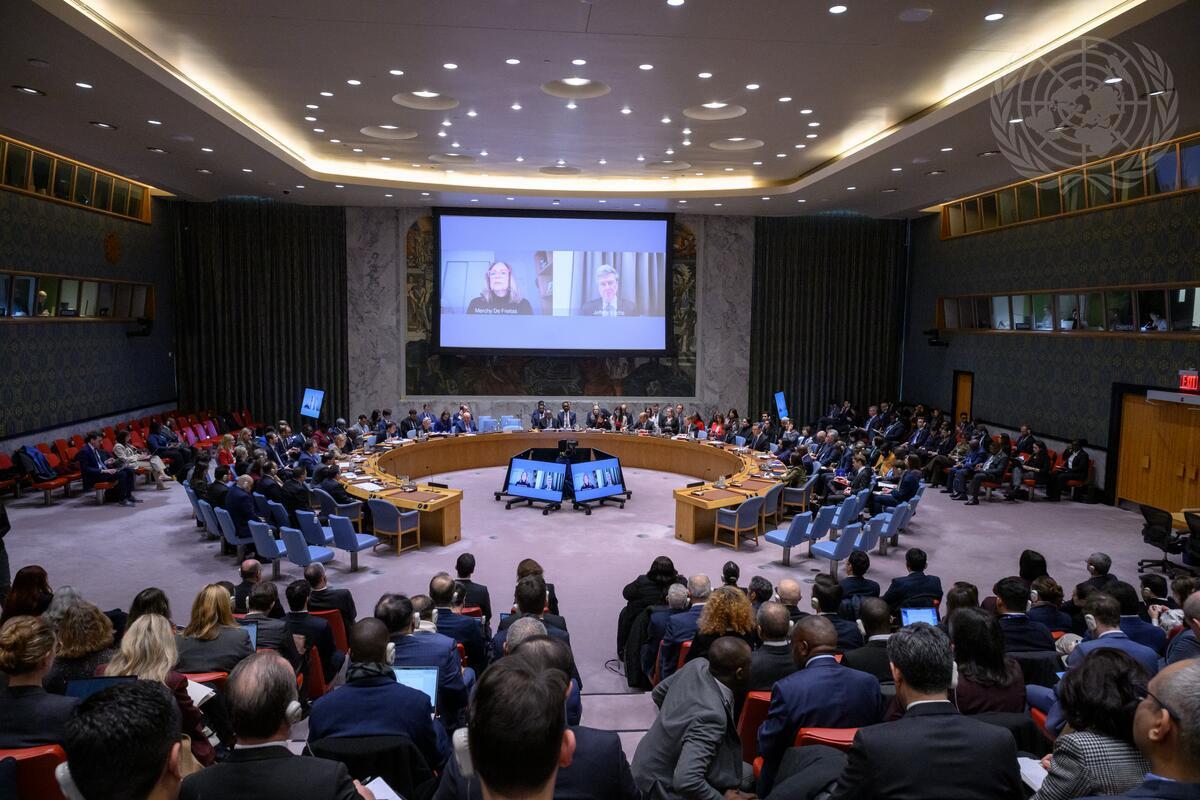Trump administration officials, including secretaries Marco Rubio and Pete Hegseth, told U.S. lawmakers that the administration currently does not plan to attack Venezuela and has no legal case to carry out land strikes. Photo: Eric Haynes.
Guacamaya, November 6, 2025. Trump administration officials told Congress that the U.S. is not currently planning to launch strikes inside Venezuela, and that it does not have a legal justification to support such attacks against any land targets, according to sources familiar with the briefing as first reported by CNN.
The briefing was conducted by Secretary of State Marco Rubio, Secretary of War Pete Hegseth, and an official from the White House’s Office of Legal Counsel.
The classified session took place just a day before a War Powers Resolution vote in the Senate scheduled for 5pm on Thursday, where lawmakers will attempt to block an attack on Venezuela.
The resolution could pass as various Republicans have expressed their doubts about military action in Venezuela, including senators Susan Collins, Todd Young, Jerry Moran, Mike Lee, and Steve Daines.
They would add to GOP senators Lisa Murkowski and Rand Paul, who already crossed the aisle to support a previous War Powers Resolution to stop strikes on alleged drug boats. In that vote, however, Democratic Senator John Fetterman voted against, thus backing military action.
In comments to Politico, Paul said that there have been “rumblings” of more dissatisfied Republicans switching sides amid concerns about the lack of legal clarity. “Really killing people without an accusation, without evidence and without a trial is not something that I find acceptable,” he said.
According to sources on Capitol Hill, the Trump administration could be preparing to send Vice President JD Vance to break a possible tie in the War Powers Resolution vote, if at least four Republicans choose to support it.
Why Republican senators are wavering: an unpopular military deployment
Various polls have shown how a military operation against Venezuela is unpopular, with more Americans opposing than supporting land strikes or even an invasion. A recent YouGov survey found that the Navy deployment around the Caribbean is losing support among Republicans.
In the latest round of elections, including to elect mayors for Miami and New York, and governors for Virginia and New Jersey, the Republican Party lost across the board.
In Miami, with large Cuban American and Venezuelan exile communities that would support aggressive action against Nicolás Maduro, Democrats won 53.5% of votes in the first round, meaning that they could win the City Hall for the first time in almost 30 years.
In South Florida, analysts have said that voters are more concerned about issues such as the Trump administration’s anti-immigration push. The White House is putting an end to Temporary Protected Status and Humanitarian Parole, leaving over a million Venezuelans, Cubans, and other nationalities without protection to remain in the United States.
Trump administration still plans to justify strikes without Congress
“What is true one day may very well not be the next,” said a U.S. official at the Wednesday briefing, according to CNN, pointing out that Trump has not decided how he will approach Venezuela in the future.
The Trump administration is seeking a separate legal opinion from the Department of Justice to use as cover if it were to launch strikes against land targets without needing authorisation from Congress.
The U.S. is continuing a massive buildup of Navy and Air Force assets in the Caribbean, which will soon be joined by Carrier Strike Group 12, which includes the USS Gerald R. Ford.
Over the last two months, the Pentagon has used its military capabilities in the region to attack alleged drug boats across the Caribbean and the Eastern Pacific, claiming that it is carrying out an operation against “narco-terrorists” and “Designated Terrorist Organisations.”
The deployment will soon have more Tomahawk missiles at its disposal than were used in the intervention in Libya or the strikes against Houthi targets in Yemen. However, ground troops are limited to a single Marine Expeditionary Unit, with around 2,200 personnel.







